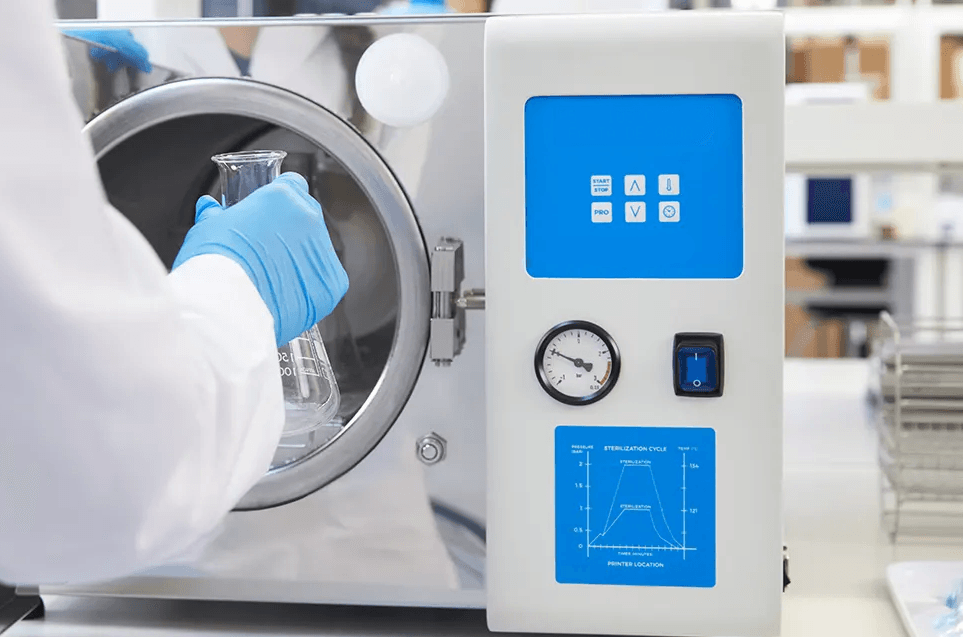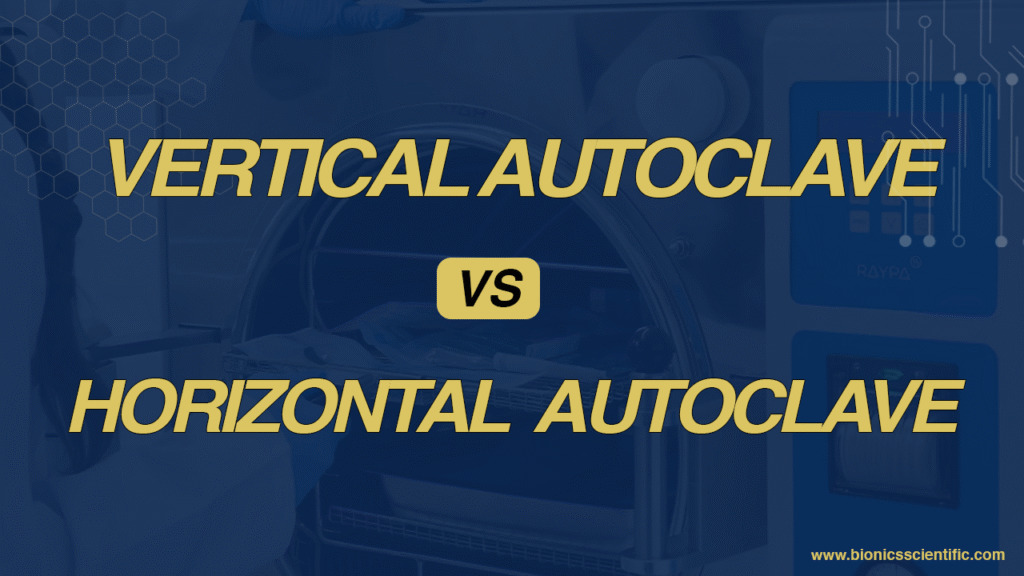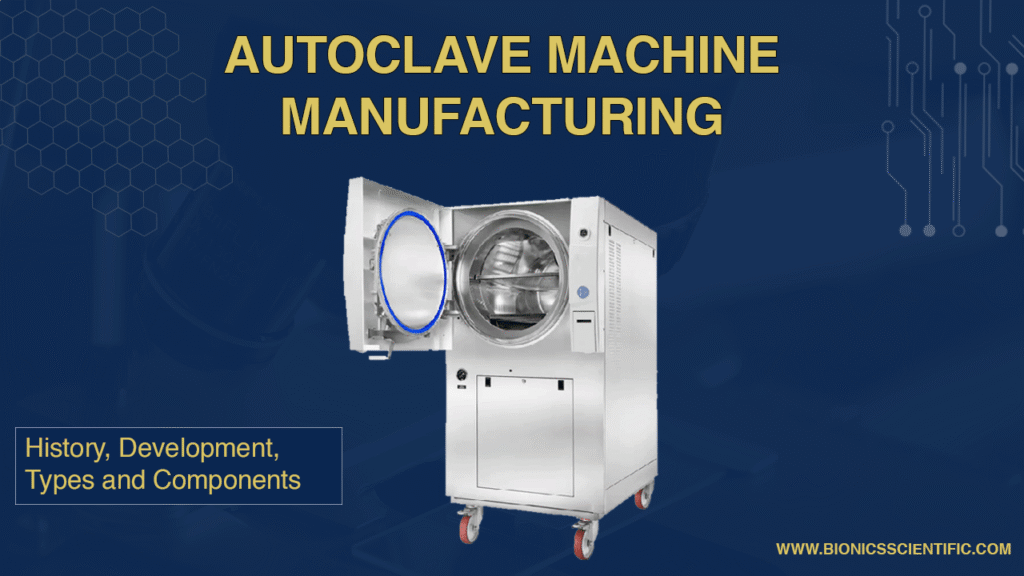Vertical vs Horizontal Autoclave: choosing the right autoclave is essential when it comes to sterilizations of laboratory equipment – It’s about improving safety, efficiency and the workflow in medical labs. At Bionics Scientific Technologies, we manufactures various autoclaves sterilizers, among them Vertical Autoclaves and Horizontal Autoclaves are well known and high in demand. but here we will see the difference beetween vertical Autoclave and Horizontal Autoclaves.
The answers is totally depends on need of sterilization, what products and equipments we sterilize and how much space you have to install the Autoclave sterlizers.
In this blog we will walk you through the key differences, pros and cons, and practical tips to help you decide between a vertical and a horizontal autoclave.
Vertical vs Horizontal Autoclave | What’s the Main Difference?
The difference lies primarily in how materials are loaded and the chamber orientation:
➤ Vertical Autoclave
- Top-loading design
- Items are inserted from the top into a cylindrical chamber
- Offers larger capacity per cycle
➤ Benchtop Horizontal Autoclave
- Front-loading, placed on a tabletop or bench
- Features a swing-door or sliding door for easy access
- Compact design, best for space-limited labs

Choosing Based on Space & Size
Vertical Autoclave:
- Needs more vertical clearance, but has a smaller floor footprint
- Great for labs that want to maximize available floor space
- Must be placed where overhead clearance is not an issue
Horizontal Autoclave (Benchtop):
- Perfect for compact labs, clinics, and workstations
- Fits easily on a lab bench or table
- Requires less vertical space and offers easier access
Capacity & Recommended Uses
Vertical Autoclaves:
- Built for large-scale sterilization
- Can sterilize bulky items, glassware, instruments, and even liquid media in large volumes
- Best suited for research labs, hospitals, universities, and pharmaceutical units
Benchtop Horizontal Autoclaves:
- Meant for smaller loads
- Ideal for sterilizing surgical tools, small instruments, and quick daily-use batches
- Popular in dental clinics, diagnostic labs, dermatology clinics, and small hospitals
Pros and Cons of Autoclaves Sterilizers
Vertical Autoclave – Pros
✔️ Larger chamber capacity
✔️ Suitable for diverse materials – solids, liquids, instruments
✔️ Efficient for bulk sterilization
Vertical Autoclave – Cons
❌ Top-loading may not be ergonomic (especially for heavy items)
❌ Slower loading/unloading process
❌ Not ideal for small-volume, frequent sterilization
Benchtop Horizontal Autoclave – Pros
✔️ User-friendly, front-loading design
✔️ Compact and perfect for tight spaces
✔️ Quick sterilization cycles for light loads
✔️ Ideal for table-top use in clinics
Benchtop Horizontal Autoclave – Cons
❌ Limited load volume
❌ Cylindrical shape reduces usable internal space
❌ Not suitable for bulky or heavy-duty lab items
How to Decide – Vertical or Horizontal?
Choosing between a vertical and horizontal autoclave depends on a few critical factors:
| Factor | Best Choice |
|---|---|
| Load Volume | Vertical Autoclave |
| Available Space | Horizontal Benchtop Autoclave |
| Type of Items | Vertical for bulky, Horizontal for light tools |
| Frequency of Use | Horizontal for daily light use |
| Budget | Vertical for long-term ROI |
Bionics Scientific Recommendation
At, Bionics Scientific Technologies, we manufacture a wide range of Autoclave Sterilizers, that includes vertical and horizontal autoclaves, specifically developed for labs, hospitals, biotech companies, and research institutions across india and overseas.
Whether you’re running a large research lab sterilizing liquid culture media in bulk or a clinic needing daily tool disinfection, we’ll help you pick the right model based on:
- Chamber size
- Required temperature and pressure control
- Type of material being sterilized
- Frequency and speed of operation
💡 Final Thoughts
There’s no “one-size-fits-all” in sterilization equipment. But with the right guidance, you can choose an autoclave that improves workflow, ensures compliance, and offers safe, reliable results.
If you’re still unsure which type suits your lab or practice — reach out to us at Bionics Scientific. Our team is here to help you make an informed decision with confidence.



